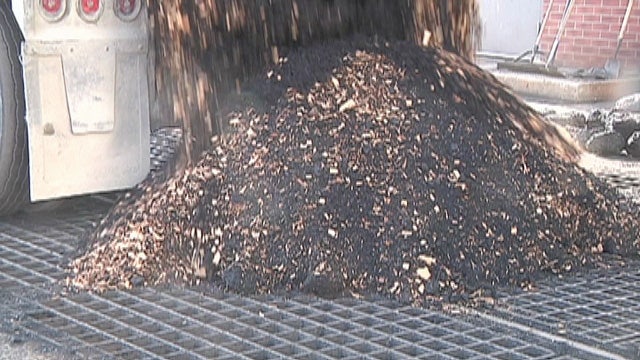Turning Misfortune into Fuel
The University of Iowa is hoping its biomass fuel project can give a boost to the local economy, all while using sustainable energy sources.
The project uses biomass, which is anything that comes from living sources like plants, animals, or trees. Biomass and renewable fuel sources are better for the environment than other fuel sources.
"Biomass boiler stack gas emissions are much more environmentally benign compared to something like coal," said Ferman Milster, a principal engineer in renewables for the university.
According to the Environmental Protection Agency (EPA), the emissions released from burning biomass, and biomass and coal mixtures, are lower than when coal is burned alone. These emissions are things like sulfur dioxide, nitrogen oxide, mercury compounds, and carbon dioxide.
The hope is that by the year 2020, 40% of the University of Iowa's energy sources will be renewable.
And a beetle that has killed millions of trees across the state of Iowa may end up being a big asset for the biomass project.
The Emerald Ash Borer, a highly invasive and deadly beetle for ash trees, has left many trees in counties nearby the university dead or dying.
A state forester with the Iowa Department of Natural Resources, Paul Tauke, says people are unsure of what can be done with the trees.
"One of the problem areas is what to do with the wood. Oftentimes in urban areas the trees aren't big enough to be marketable and even if they are they don't have good form for timber products," said Tauke.
The trees are left to rot or burn in landfills, but the University of Iowa is hoping those trees can be turned into wood chips and made into fuel for their power plant.
"Wood ash has nutrients in it, it can be used as fertilizer, you can't do that with coal ash. So ultimately if we transition off coal, not only are we buying our fuel in Iowa, we can return something to the soil," said Milster.
But turning the whole trees, or cut up logs, into a size and shape that works with the power plant's burners is not easy.
"We know there are going to be lots and lots of ash trees, it's a question of can we find the equipment available that will produce the type of chip we need," said Milster.
And transportation of the wood chips can be expensive.
"I think the problem for a lot of people in Iowa is just the cost of moving those chips from the location to where the University can make use of them," says Tauke.
Milster says that he thinks the project researchers will figure out a cost-effective way to transport and chip the trees in the next few months.
"People that have to get rid of ash trees are going to want to know what can we do with them. Hopefully we can provide an alternative for energy recovery rather than just having to landfill or open burn that wood," says Milster.
The hope for the university is the biomass fuel project will allow it to buy renewable fuel sources in-state and be less coal dependent.




















